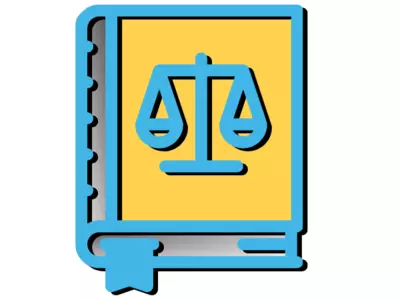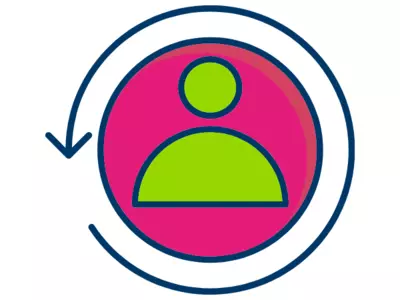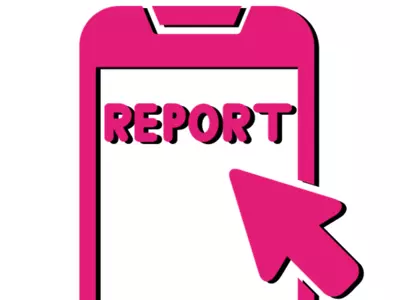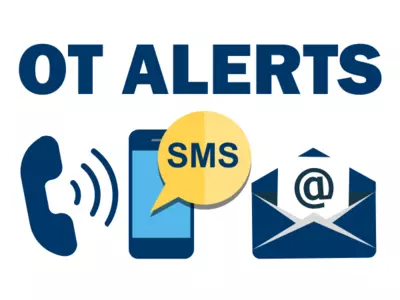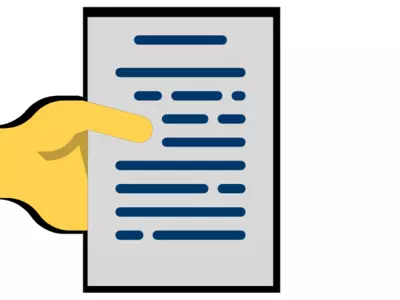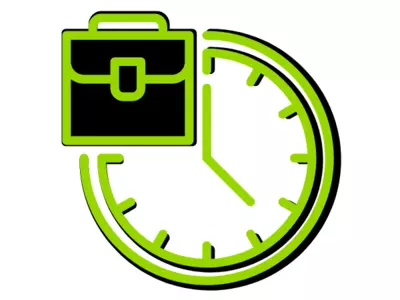Academic Integrity Information
Academic Integrity, Disciplinary Procedures, Settlement Procedures
- Faculty member and/or administrative director meets with the student and presents them with the allegation and evidence of the academic integrity violation.
- Faculty member and/or administrative director requests an explanation from the student.
- After hearing the explanation, the faculty member and/or administrative director will determine whether a violation has occurred. If so, they will fill out a settlement form noting the penalty. A copy will be sent to the student.
- The student will be allowed 48 hours to consider and seek advice on whether to admit guilt and accept the penalty by agreeing on the form.
- If settlement is reached, the faculty member and/or administrative director imposes the penalty and delivers the settlement form in a “confidential” envelope to the Office of Student Affairs who keeps a record of offenses. The student is given a copy of the form.
- If the student refuses to meet with the instructor or administrative director, the faculty member and/or administrative director must note the response on form to the Office of Student Affairs.
- If during the meeting the student neither admits guilt nor agrees with the penalty and signs the settlement form accordingly, the faculty member and/or administrative director must must note the response on the form for the Office of Student Affairs.
- Students have the right to file an appeal as outlined in the Student Code of Conduct and Disciplinary Procedures.
Academic Integrity Reporting e-Form
OIT-14-030 Student Academic Integrity
View all academic policies and procedures policies on the official Human Resources page.
- Academic Grievance
- Academic Integrity
- Academic Progress and Petitions Committee
- Academic Standing
- General Education Requirements
- Grading System
- Graduation
- Transcripts
- Drops from Class/ Withdrawals
- Procedures, Policies and Regulations
- Student Records and Right to Privacy
As part of our mission to enable students to become responsible citizens by developing ethical awareness, Oregon Tech expects that students, staff, and faculty share in the responsibility of maintaining high academic standards. Faculty and staff are expected to encourage and sustain academic excellence. Students are expected to demonstrate their knowledge with honesty and integrity. Oregon Tech considers academic dishonesty to be an unacceptable practice.
Definitions
Academic dishonesty is defined as cheating, plagiarism or otherwise obtaining grades under false pretenses.
GenAI (Generative Artificial Intelligence): refers to artificial intelligence technologies that can generate text, images, and other content based on input parameters. These technologies use complex algorithms to create content that resembles human-generated content.
GenAI Detection Program: refers to software tools designed to identify when and where GenAI has been used to generate or modify content. Programs analyze text and compare patterns, phrasing, and structure against common GenAI outputs to detect possible unauthorized use.
Cheating: obtaining or providing unauthorized information during an examination through verbal, visual or unauthorized use of books, notes, text, electronic devices, and other means; obtaining or providing unauthorized information concerning all or part of an examination prior to that examination; taking an examination for another student or arranging for another person to take an exam in one’s place; altering test answers after submittal for grading; changing grades after grades have been awarded; altering other official academic records; any use of GenAI tools without written permission from the course instructor to do so; or otherwise interfering with the accurate evaluation of an individual’s knowledge.
Plagiarism: submitting the language, ideas, thoughts, or work of another as one’s own or assisting in the act of plagiarism by allowing one’s work to be used in this fashion. This can include the unauthorized use of GenAI (see definition).
Unauthorized Use of GenAI: submitting work done with the assistance of GenAI or a similar technology without written permission from the course instructor to do so. Essentially, such an act is a form of plagiarism or cheating, depending on the assignment, carrying the same penalties. Written permission may take the form of a syllabus policy, an assignment or exam instruction, an individual email, or otherwise. Even with written permission, students must declare/cite any use of GenAI assistance in their submissions.
Exception for Unauthorized Use of GenAI: editing and grammar suggestions on word processing programs are a form of GenAI. The use of such suggestions within or between a sentence is similar to using spellcheck and is allowable, though in the interest of learning, students are advised to consider the effectiveness of GenAI suggestions.
Disciplinary procedures for incidents of academic dishonesty may involve both academic and administrative action. After following the settlement procedures outlined below, the instructor of record may choose one or more of the following actions:
- Provide a written warning to the student (with copy to the Office of Student Affairs).
- Award a failing mark on the test or paper in question.
- Require the student to retake the test or resubmit the paper.
- Refer the case to the Student Hearing Commission.
Academic action by instructor of record may not include assigning a grade of "F" for the course or administratively withdrawing the student from the course based solely upon the incident of academic dishonesty. (Oregon Department of Justice Memorandum, 1979)
Administrative directors who determine in the course of their duties that academic dishonesty has occurred will also use the settlement procedures outlined below, notifying the instructor of record, and may choose either action l or 4, above.
All academic dishonesty cases will be reported to the Office of Student Affairs. If a faculty member and/or administrative director has evidence that a student has violated the Student Academic Integrity policy, the case may be handled either through settlement or a hearing. If the student is attending Oregon Tech, the faculty member and/or administrative director must meet with the student as soon as possible after discovering the violation. After meeting with the student, the faculty member and/or administrative director will determine the appropriate procedure based on the following:
- If the faculty member and/or administrative director believes that the suspected violation can be resolved under the settlement procedures, they will contact the Office of Student Affairs to determine if the student is eligible for settlement. If a student has a prior academic dishonesty offense, they are not eligible for settlement.
- If the student is eligible, the faculty member and/or administrative director may proceed with the settlement procedure.
- If the student is not eligible for settlement, or if the faculty member or administrative director believes the suspected violation is serious enough to warrant a greater penalty than those outlined under the disciplinary procedures, the faculty member or administrative director must refer the case to the Student Hearing Commission by notifying the Office of Student Affairs.
Course Instructors may use a GenAI Detection Program to assist in identifying the possible unauthorized use of GenAI. GenAI detection programs should not serve as the only evidence for a violation of unauthorized use of GenAI. GenAI Detection Program results are not enough to determine academic dishonesty without a more in-depth review of a student’s previous work.
Standards of conduct are authorized by Oregon State Board of Higher Education Administrative Rules, Chapter 580, Division 22, Section 0015, and by concurrent action of the ASOIT and the Faculty Senate with the approval of the President of the College acting on behalf of the Oregon State Board of Higher Education.
This policy was reviewed and open to consultation by the following Oregon Tech committees and/or advisory groups: Faculty Senate.
This policy was adopted pursuant to Oregon Tech’s policy review and making process. Approved by the President on January 24, 2025.
Oregon Tech Student Project: Guide to AI
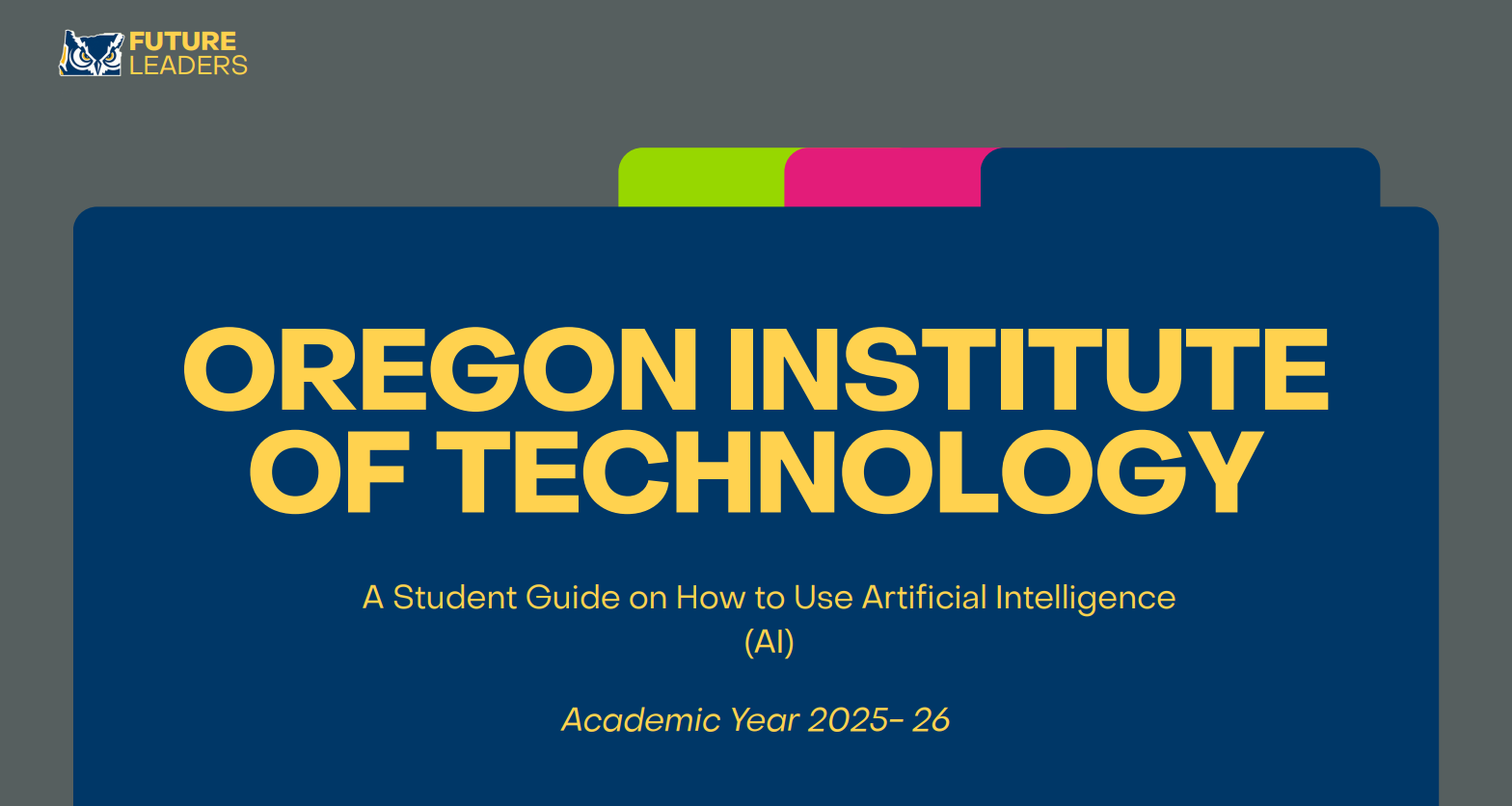
https://www.oit.edu/sites/default/files/2025/documents/Guide%20To%20AI%20Presentation.pdf
Dean of Students Office
Contact our Office
College Union, 2nd floor, Rm 217
3201 Campus Dr.
Klamath Falls, OR 97601
Ask a Question
Do you have a question and not sure who to ask? Or, do you have a suggestion you would like to tell someone about?
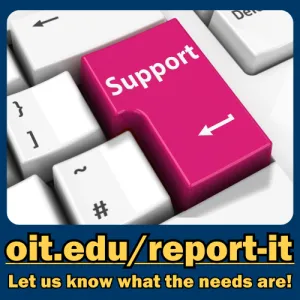
Disability and Testing Services
DISABILITY AND TESTING SERVICES
Disability Services facilitates access to Oregon Tech programs and services for individuals with disabilities through accommodations, education, consultation, and advocacy. We strive to promote a diverse, inclusive, supportive, and accessible learning and working environment for individuals with disabilities. We recognize disability as diversity and ensure individuals with disabilities have full access, inclusion, and belonging in the Oregon Tech community.
Testing Services provides a secure, equitable and professional testing environment for accommodated testing to support Oregon Tech students registered with Disability Services and those who need to schedule a make-up exam.
Medical Withdrawal
A Medical Withdrawal is requested when a student is suffering from a medical condition that prevents the completion of the term. A "W" will be placed on the student's Oregon Tech Transcript. Students who receive a medical withdrawal may be placed on hold until the University can determine that the student is ready to return. Medical withdrawals can be for all courses or individual course(s) the student is registered in for the term. A medical withdrawal must be filed within six (6) months of the end of the term involved. If a student is approved for medical withdrawal, the student may apply for a Tuition Refund Appeal through the Business Affairs Office.
Eligibility Requirements:
- Only illness or injuries, as it relates to the student, of extended duration are normally considered for a medical withdrawal. Consideration will be given only when an illness or injury makes it impossible to complete a term.
- Read the instructions and definitions on the request form explaining the medical withdrawal process and its consequences, if approved.
- Students who wish to file a request for medical withdrawal should print and complete the form and attach supporting medical documentation. The letter in support of your medical withdrawal may be written by a physician, counselor or other medical provider, and must provide dates seen and recommend withdrawal from class(es).
- The following items will be required to file for a Medical Withdrawal and should be returned to the Student Affairs Office:
- Request for Medical Withdraw - is a request to be medically withdrawn from the University and should be returned to the Student Affairs Office.
- Supporting Medical Documentation - is a medical release form to be signed and returned along with Request Form by the student.
- Return the completed items to Student Affairs, College Union 217. You may email to student.affairs@oit.edu or fax to 541.885.1122. An evaluation will be made by the Dean of Students upon receipt of all appropriate medical withdrawal forms. Your Medical Withdrawal request will take approximately two to three weeks to review.
To submit a Tuition & Fee Appeals Form, please go to the Business Affairs Office website.
Oregon Tech Policies
Student Affairs Anonymous Report Form
Listed below are established university policies and procedures. Individual departments may have their own policies or procedures, which are not indexed on this webpage or maintained by the President's Council.
For additional resources concerning students, visit Student Information.
Academic Policies, Procedures, Appeals
Please read the University Catalog each year.
The General Catalog provides details for all academic programs, course descriptions, recommended paths, current academic policies, procedures, and more information. The site is valuable to current students as well as those considering attending Oregon Tech in the future.
Academic Policies and Procedures
- Academic Grievance
- Academic Progress and Petitions Committee
- Academic Standing
- General Education Requirements
- Grading System
- Graduation
- Transcripts
- Drops from Class/ Withdrawals
- Procedures, Policies and Regulations
- Student Records and Right to Privacy
Student Records Privacy Policy: Release of Information
- Family Educational Rights and Privacy Act of 1974 (FERPA)
- Release of Information (Authorize others to access your information)
- Provide others Proxy Access to your Student Account and Records
Student Policies & Shared Governance Information
- All university policies are listed on the Human Resources policies page and are organized into categories by type of affiliation.
Stop Campus Hazing

How we're all responsible to ensure Oregon Tech is a safe community
HAZING as defined by Oregon Tech's Anti-Hazing Policy and the Student Code of Conduct
Any intentional, knowing, or reckless act in connection with student organization membership or participation that creates an unreasonable risk or causes physical injury or psychological harm. Consent is not a defense under Oregon law (ORS 163.197).
Any action or activity that causes or intends to cause physical or mental discomfort or distress.
Any action that may demean, degrade, or disgrace any person, regardless of location, intent, or consent of participants, for the purpose of initiation, admission into, affiliation with, or as a condition for continued membership in a group or organization (on or off campus).
Apathy or acquiescence in the presence of hazing is not a neutral act; they are violation of this rule. Suspension for students found responsible for hazing when harm/injury occurs is recommended.
Examples include, but are not limited to:
- Sleep deprivation or causing extreme fatigue
- Physical or psychological shock; •
- Public stunts or jokes;
- Compelled ingestion of any substance, including water
- Degrading or humiliating games or activities;
- Forced servitude.
Campus Hazing Transparency Act
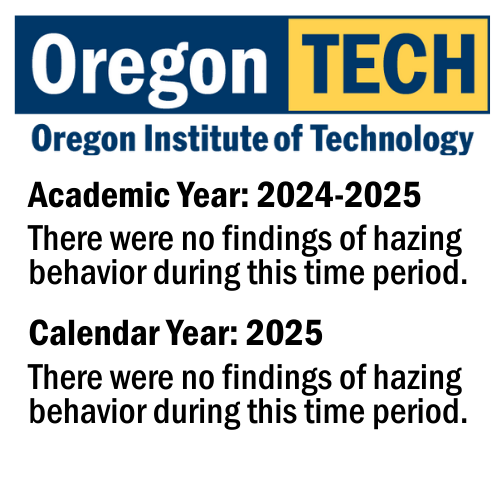
Academic Year: 2024-2025
There were no findings of hazing behavior during this time period.
Calendar Year: 2025
There were no findings of hazing behavior during this time period.
"Campus Hazing Transparency Report: Each institution must compile and publish on a prominent location of their public website a hazing transparency report that summarizes findings concerning any student organization found to be in violation of the institution’s standards of conduct related to hazing. The report will include:
- The name of the student organization;
- A general description of the violation that resulted in a finding of responsibility; and
Related dates (the date of the alleged incident, the date of the initiation of the investigation, the date the investigation ended with a finding, and the date the institution provided notice to the organization of the finding)."
Clery Center. (2025, December 18). The Stop Campus Hazing Act: What You Need to Know. CleryCenter.org. https://www.clerycenter.org/scha-what-you-need-to-know
Oregon Tech Executive Summary of ORS 350.259 Stop Campus Hazing Act published December 23, 2025
Webpage updated December 23, 2025.
Frequently Asked Questions (FAQs)
All university employees can help you find ways to report.
Hazing that is witnessed, experienced, or suspected can be reported.
- Online report forms: https://www.oit.edu/student-affairs/report-it
- Campus Security Authorities: https://www.oit.edu/title-ix
- If you are unsure what to do, contact Student Affairs.







